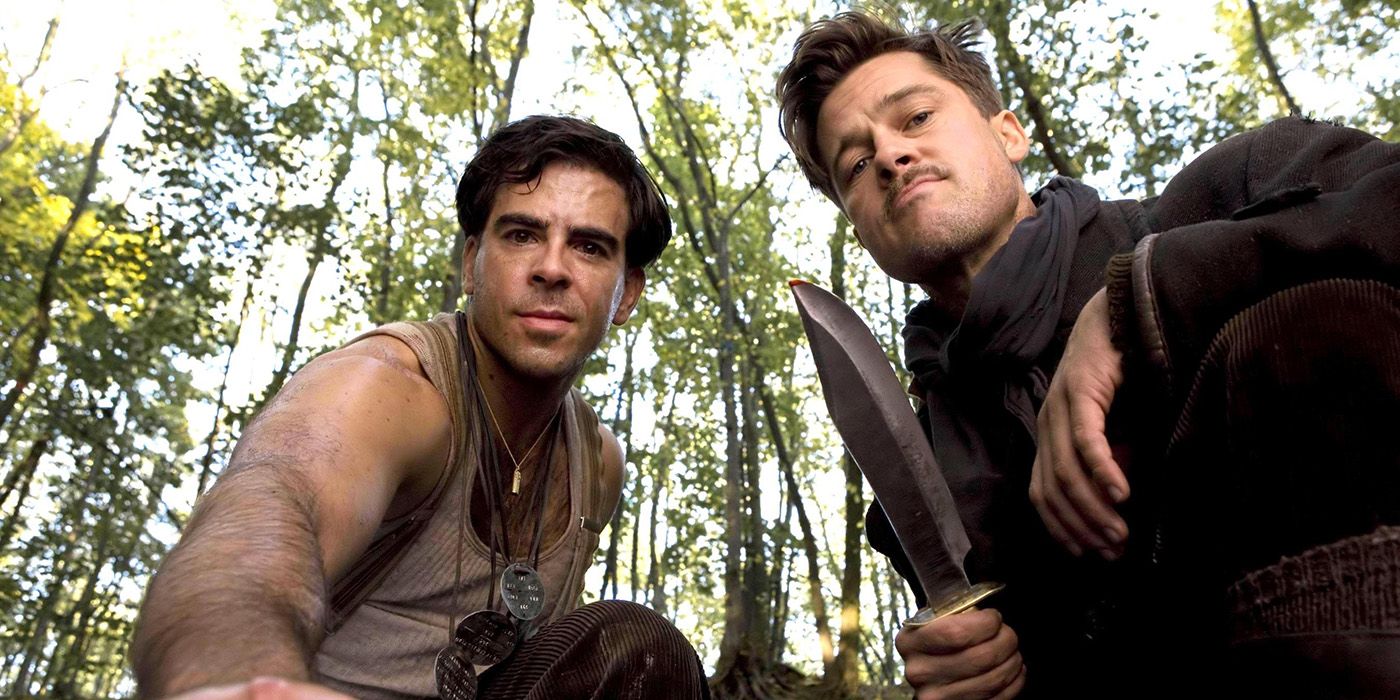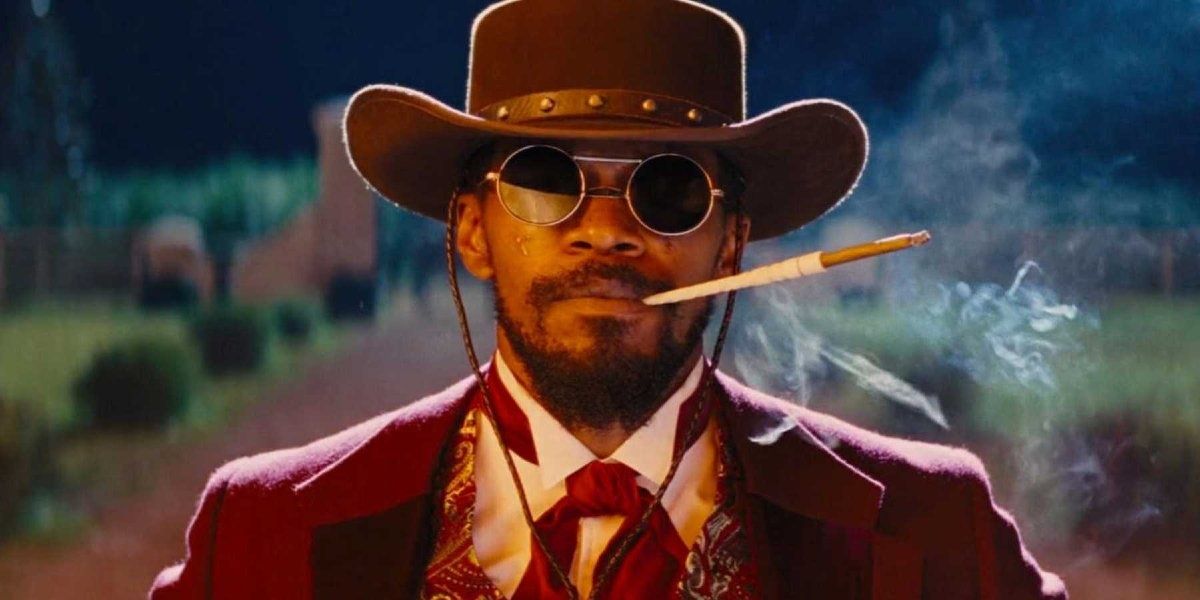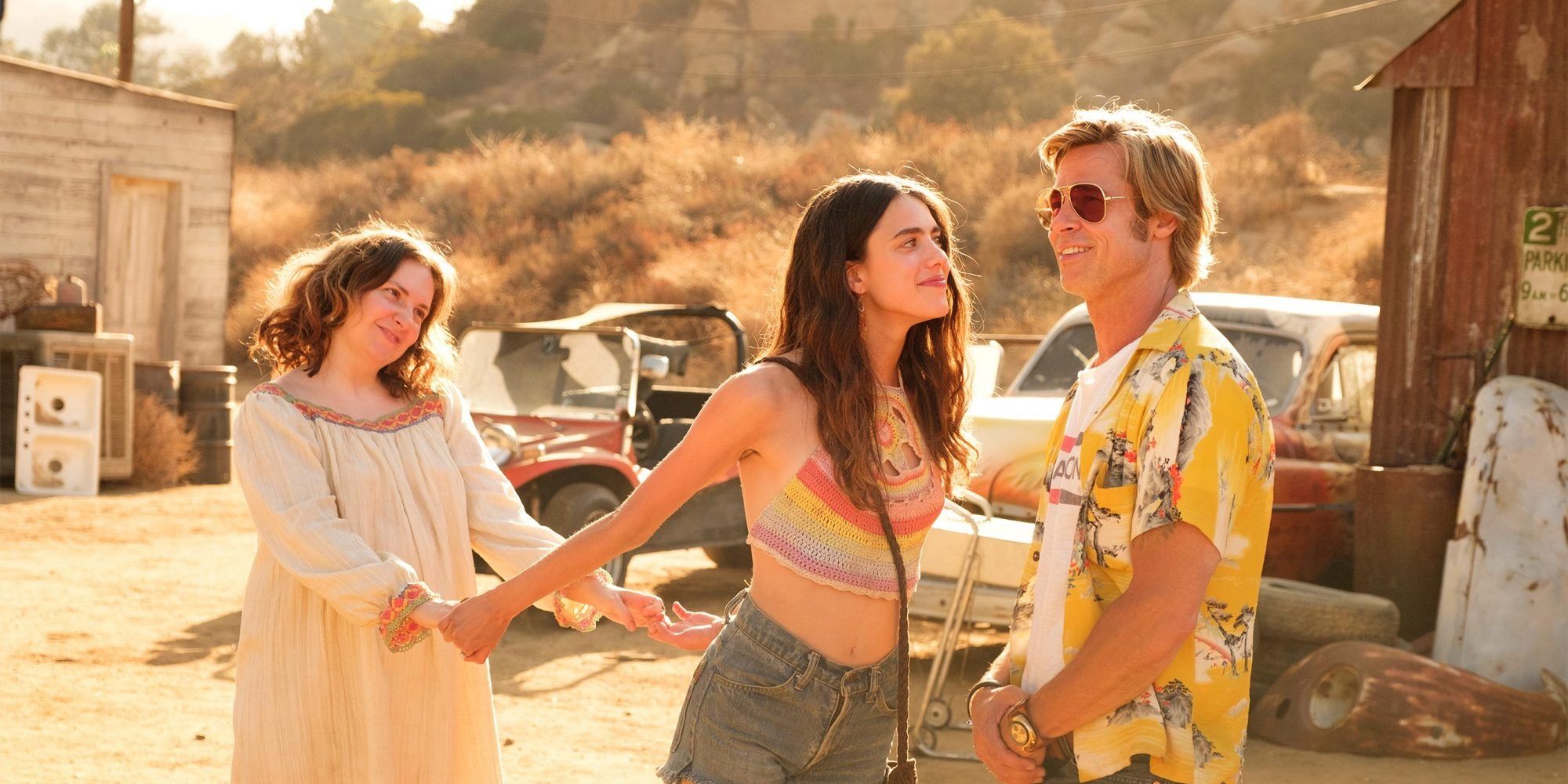Quentin Tarantino is a hugely unique and influential filmmaker. He takes elements from just about every other big name in the medium, but no one puts things together quite like Tarantino. His films are usually only related by themes and creative vision, but three projects, Inglourious Basterds, Django Unchained, and Once Upon a Time in Hollywood, are unique standouts in the alternate history genre.
All things considered, Tarantino's most influential film is probably still Kill Bill, but his best film is open to debate. Among his many accomplishments, his vast contribution to the small and powerful world of historical revisionism stands out as particularly influential.
Tarantino's world of alternate history began with his seventh film Inglourious Basterds. The film takes place behind enemy lines in early-40s Germany, where a group of American commandos executes a plot to take down the Third Reich. Tarantino was working on the script for over a decade before production, starting with the broad idea of a Dirty Dozen-style mission movie and expanding from there. The film changes huge details of the war, treating World War II more like a work of legend than a historical event. He followed that project with Django Unchained, which married old western fiction to the most abhorrent elements of the real historical era. It's a fairy tale, a spaghetti western, and a stark examination of the atrocity and legacy of slavery rolled into one story. Finally, Once Upon a Time in Hollywood was a love letter to the final days of 60s Tinseltown. These films offer a crash course in using history as more than just a setting.
The essential elements of Tarantino's alternate history trilogy are historical setting, fairy tale elements, and genre pastiche. The three films aren't just based on history, they're in conversation with the long tradition of other films made about the subjects. Basterds became a World War II movie in a culture of tons of other films of the same sort. Tarantino would've begun writing it shortly after the blockbuster release of Saving Private Ryan, which brought the haunting violence of war back into war movies. Basterds kept the violence intact, while also allowing its heroes to become mythic in their accomplishments. Rather than drastically changing the historical events, Django is a theoretically plausible story that takes place in a combination of real history and movie fantasy. Hollywood does the same, dialing the fairy tale elements up to eleven and depicting the unpleasant underbelly with a bit more snark. It's this simple mixture that makes alternate history work on the big screen.
Tarantino seems to be fascinated by history, but only as a fantastical setting in which to tell new stories. He treats real events with the same level of reverence as artists used to treat ancient mythology. Most alternate history stories start with a "what would happen if" sort of question and build their story around the answer. The Man in the High Castle, for example, explores a world in which the Nazis won World War II. Tarantino's take on the genre isn't as interested in the big events or the broad strokes. He doesn't depict a new world in which everything is changed, he tells more personal mythical stories in a grounded world. He uses the audience's expectations and understanding of the historical environment as the shared background. Everyone's seen a western, a World War II movie, and a film from the golden era. With that in mind, Tarantino can charge ahead with a new story that changes the way people look at the setting.
Tarantino's films almost exist in a magical hyperreality. It's beyond alternate history fiction, it's alternate fiction. He expects, if not demands, his audience to know very little about the actual real-world events. It does help, however, to know just about everything about previous pop-cultural depictions of the era. These takes on the supposed real-world events that inspire them are actually entirely dependent on existing cinematic material that has already covered it. Alternate history gives Tarantino the right to play with old-fashioned heroes and villains, but it also allows him to turn the most nightmarish moments of history into new fantasy worlds.
Quentin Tarantino's trilogy of unique alternate-history films creates a sort of alternate fantasy realm informed by real history. The world of Inglourious Basterds, Django Unchained, and Once Upon a Time in Hollywood is a cocktail of cinematic magic and historical revisionism. It's a world in which heroes overcome the forces of oppression, bondage, and nostalgia on a mythic scale. Tarantino hasn't returned to this concept since Hollywood, and there's no telling whether he will do so again, but he's helped to define a genre. The world of alternate history could still see a wide variety of new developments, but no one has created the kind of magical film world that Tarantino's stories seem to inhabit.



